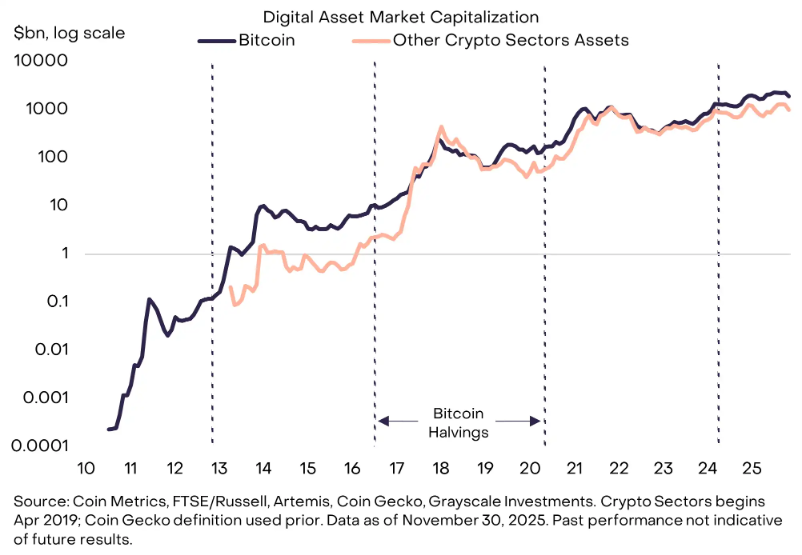The Strategic Implications of Legal Clarity for Bitcoin Treasury Firms
- August 2025 dismissal of Strategy Inc. class-action lawsuit marks legal clarity for Bitcoin treasury strategies, boosting institutional confidence in crypto-backed equities. - Investors voluntarily dropped claims with prejudice, establishing corporate crypto accounting under ASU 2023-08 as legally defensible despite $4.22B losses. - Regulatory developments like SEC's Project Crypto and CLARITY Act align with Strategy case, signaling maturing frameworks for digital asset oversight and market efficiency. -
The dismissal of the class-action lawsuit against Strategy Inc. in August 2025 marks a pivotal moment for Bitcoin treasury strategies, signaling a shift toward legal and regulatory clarity that could redefine institutional confidence in crypto-backed equities. By voluntarily dropping claims with prejudice, investors effectively ended the legal challenge, which had accused the firm of misrepresenting the risks and profitability of its Bitcoin holdings under the Financial Accounting Standards Board’s (FASB) ASU 2023-08 [1]. This resolution not only shields Strategy from future litigation but also establishes a precedent that corporate adoption of fair-value accounting for crypto assets is legally defensible, even amid volatility-driven losses [2].
Legal Precedent and Institutional Confidence
The lawsuit’s dismissal underscores a critical development: courts are increasingly recognizing the legitimacy of Bitcoin treasury models. Strategy’s decision to adopt ASU 2023-08—requiring crypto assets to be marked to market—initially led to a $4.22 billion net loss in Q1 2025 [3]. Critics argued this standard obscured strategic risks, but the legal outcome suggests that transparency in reporting, even if unflattering, is sufficient to meet disclosure obligations [4]. This clarity reduces the “regulatory friction” that has historically deterred institutional investors, who now face fewer legal uncertainties when allocating capital to crypto-backed equities [5].
Moreover, the case highlights the growing alignment between corporate treasuries and institutional investors. Strategy’s Bitcoin holdings, now valued at $70 billion, have driven a 150% stock price surge in the past year [6]. This performance demonstrates that, despite short-term volatility, the long-term value proposition of Bitcoin treasuries—when paired with robust accounting practices—can attract sustained capital inflows.
Regulatory Developments and Market Opportunities
The lawsuit’s resolution coincides with broader regulatory efforts to stabilize the crypto landscape. The U.S. Securities and Exchange Commission’s (SEC) Project Crypto initiative, launched in July 2025, aims to modernize custody rules and provide clearer guidance on digital assets [7]. Simultaneously, the CLARITY Act—pending in Congress—proposes categorizing digital assets into distinct regulatory frameworks, assigning oversight to the CFTC and SEC based on asset type [8]. These developments, combined with the Strategy case, signal a maturing regulatory environment where innovation and compliance can coexist.
For example, the SEC’s recent approval of in-kind creations and redemptions for crypto ETPs (exchange-traded products) has reduced transaction costs and improved market efficiency [9]. This mirrors the growing institutional appetite for crypto-backed equities, as seen in the launch of a Dogecoin treasury company backed by Elon Musk’s legal team, aiming to raise $200 million [10]. Such ventures reflect a broader trend: corporations and investors are leveraging crypto’s volatility as a strategic asset rather than a liability.
The Path Forward
While the Strategy case is a milestone, challenges remain. The SEC’s enforcement focus on “intent-based” litigation—targeting deceptive practices rather than mere compliance gaps—means firms must prioritize investor education and risk communication [11]. However, the dismissal of the Strategy lawsuit and the SEC’s evolving stance suggest that regulatory clarity is no longer a distant goal but an actionable framework.
For investors, this translates to new opportunities. The $110 billion in corporate Bitcoin holdings across 152 firms [12] represents a diversified pool of assets that can be leveraged for yield generation, hedging, or capital appreciation. Meanwhile, the rise of tokenized securities and stablecoin frameworks under the GENIUS Act [13] further expands the toolkit for institutional portfolios.
Conclusion
The dismissal of the Strategy lawsuit is more than a legal victory—it is a catalyst for institutional adoption. By affirming the legitimacy of fair-value accounting and signaling regulatory stability, the case reduces the “black box” perception of crypto treasuries. As firms like Strategy continue to accumulate Bitcoin and regulators refine their frameworks, the long-term viability of crypto-backed equities will depend on balancing innovation with transparency. For investors, the message is clear: the era of crypto treasury strategies is no longer speculative—it is strategic.
Source:
[1] Strategy Investors Drop Class Action Alleging Bitcoin Treasury Company Misled Them
[2] The Legal and Strategic Implications of Bitcoin Treasury
[3] Strategy Investors Drop Suit Over Crypto Accounting
[4] Investors End Class Action Against Strategy Over Bitcoin Accounting Dispute
[5] FASB Issues Significant Update on Accounting for Crypto Assets
[6] Strategy Investors Dismiss Lawsuit Claiming Bitcoin Mismanagement
[7] US Crypto Policy Tracker Regulatory Developments
[8] Mid-Summer Developments in Crypto Legislation and Regulatory Guidance
[9] SEC Ends Lawsuit Against Ripple, Company to Pay $125 Million Fine
[10] Elon Musk's Lawyer Alex Spiro Set to Chair $200 Million Dogecoin Treasury Company
[11] The SEC vs. Unicoin and What It Means for Crypto Investors
[12] Lawsuit Against Strategy Bitcoin Dismissed with Prejudice
[13] Mid-Summer Developments in Crypto Legislation and Regulatory Guidance
Disclaimer: The content of this article solely reflects the author's opinion and does not represent the platform in any capacity. This article is not intended to serve as a reference for making investment decisions.
You may also like
Why XRP Price Falling Below $1.93 Could Change the Short-Term Market Structure
Looking Ahead to 2026: Institutional Consensus on the Crypto Market

Unlocking Potential: Animoca Brands Japan & Babylon Labs Forge Strategic Bitcoin Staking Partnership